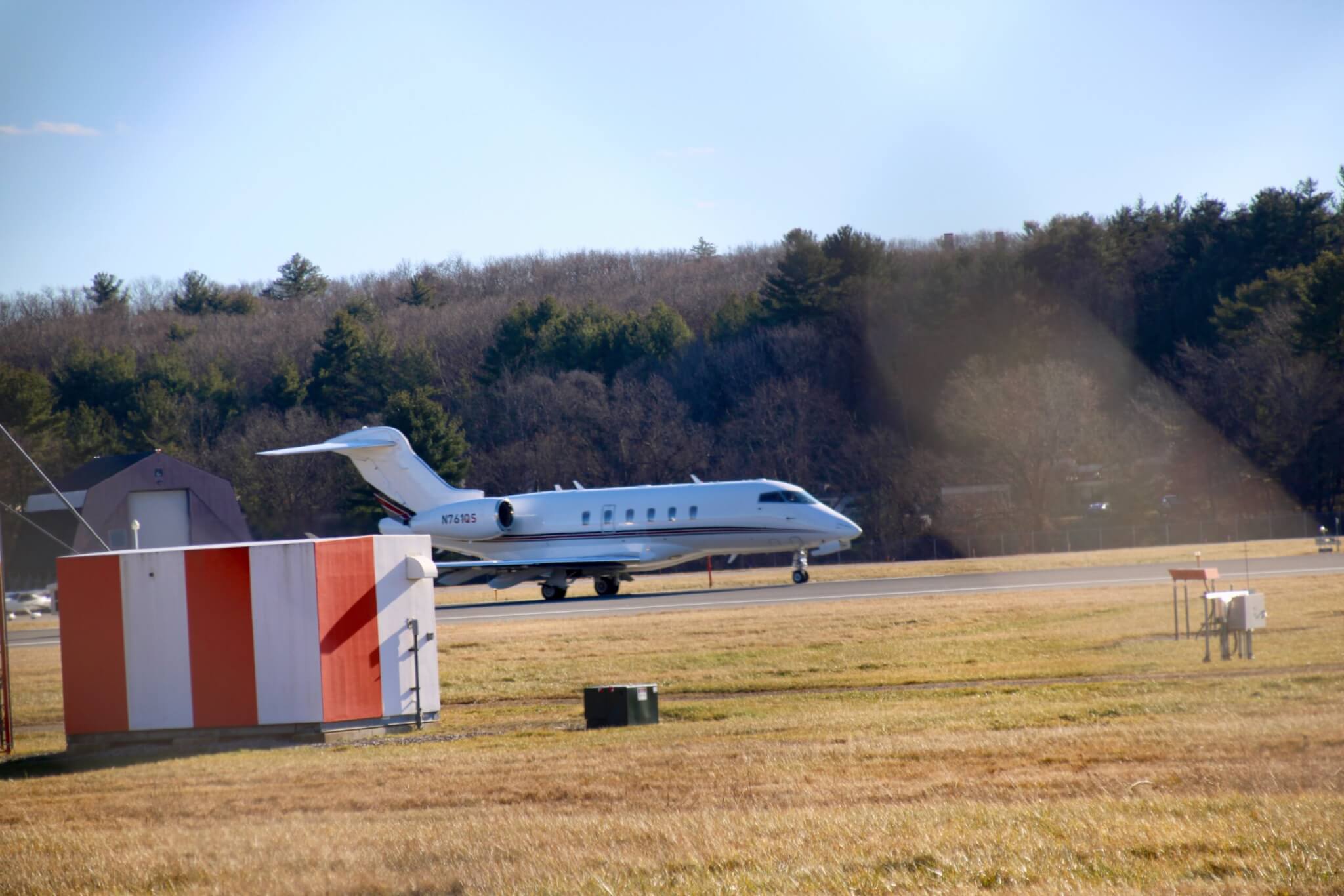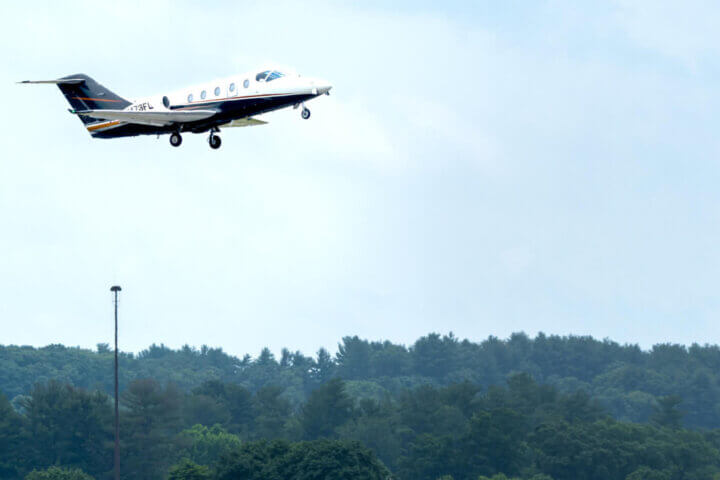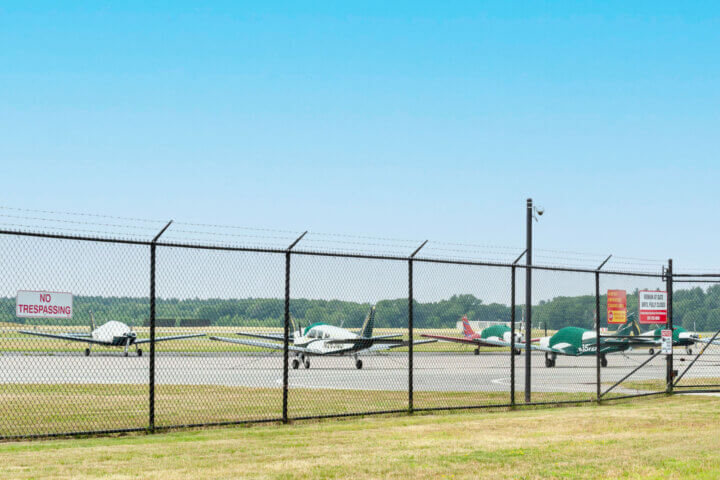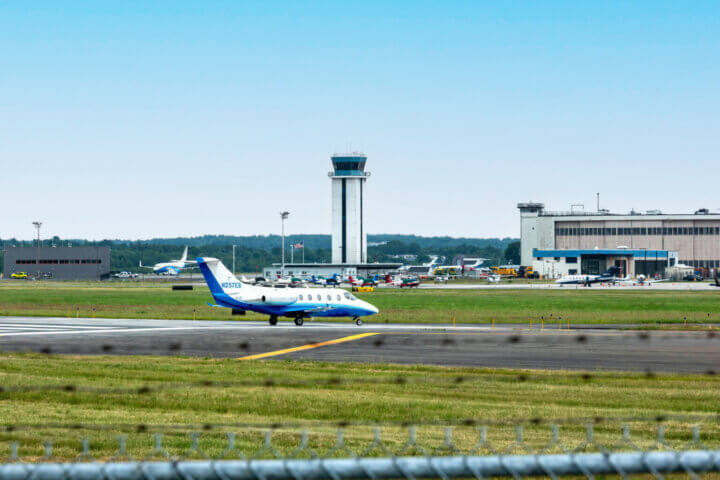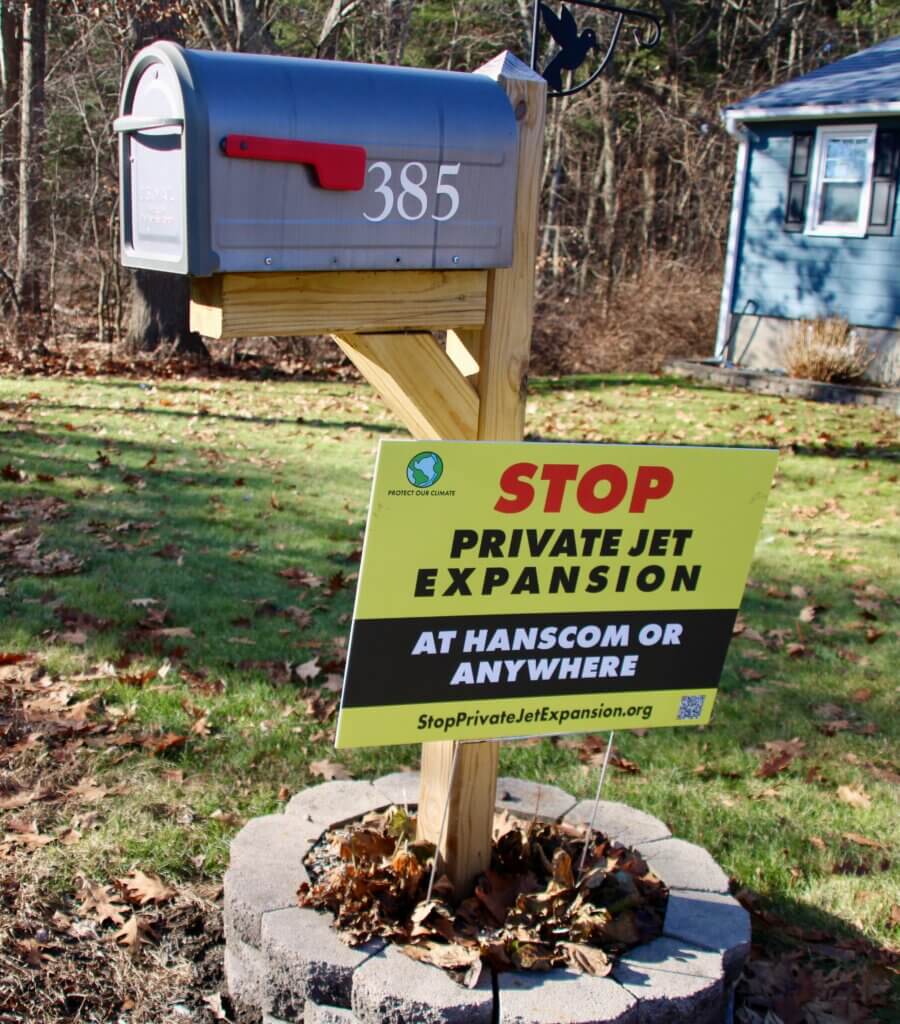
A proposed expansion at Hanscom Field is opposed by activists and environmentalists who view it as benefiting a few wealthy people to the detriment of climate change and at the expense of taxpayers.
“Our grandchildren are not going to be happy about what we’re leaving them,” Neil Rasmussen of Concord’s Save our Heritage told more than 150 people attending a forum sponsored by the League of Women Voters of Concord-Carlisle.
The number of proposed hangars, first set at 27, has been reduced, he said, but the project will only serve the wealthy, who often use private jets to travel to local resort areas. Rasmussen called flying to Martha’s Vineyard “one of the dumbest uses for a jet” and referred to the state as creating homes for “poor homeless jets,” to chuckles from the audience.
Jets that do not have hangar space are flown, or ferried, to another location, rather than remaining on Hanscom until the next flight. The proposal contends that with more hangars, fewer ferry flights will be needed.
Developers announced a plan to add the hangars to the airfield in January. The Massachusetts Environmental Policy Office is reviewing the preliminary proposal but has not released a public finding which was expected in the fall.
The number of proposed hangars was reduced to 17, a change made in response to the Secretary’s Certificate on the Environmental Notification Form sent to the Massachusetts Environmental Policy Agency in June; prospective tenant needs and requirements; and public comments, wrote Ken Schwartz, senior vice president at VHB, the engineering firm that prepared the proposal.
The private jet industry creates greenhouse gas which will continue to increase with more planes in use, Rasmussen said.
The industry is subsidized by taxpayers: the planes and their parts and fittings are not subject to sales tax, jet fuel is not taxed, the airfield does not pay property tax and the runways and towers are funded through what commercial airline passengers pay, Rasmussen said.
Opponents to the expansion plan have only a narrow target of influence, he said. Massport, the Massachusetts Port Authority, has some say over building facilities, but once they are built, the state agency has no control anymore.
Another speaker, state Sen. Mike Barrett (D-Third Middlesex), said there is more margin for action than Rasmussen presented.
He pointed to a 1971 proposal to build an inner-belt highway that would cut a swath through poor and working-class areas in greater Boston.
“But people got angry,” he said. Gov. Francis Sargeant took an interest and “he just brought it to a halt.”
The legislature can bring changes, he said. Massport has never had a charge to be concerned with climate change. Federal law might preempt fuel tax, but perhaps local taxes can be added to sales of the jets, parts and fittings.
December 6, the day of the forum in Concord, was aviation day at COP28 in Dubai, the United Nations Global Climate Action Summit, said Chuck Collins, a panelist from the Institute for Policy Studies, a D.C.-based progressive think tank.
“I like to think our little shot heard here in Concord is being heard over there in Dubai,” he said.
Requiring jet owners to pay the real cost will have a global ripple, he said. “The rest of the world is ahead of us,” he said, calling for banning short-hop flights, increasing taxes on fuel and private aviation and a stop to expansion.
“We need your help,” said Alex Chatfield, a panelist from St. Anne’s Climate Justice Committee in Lincoln. Write a letter and lobby elected officials; sign the petition and donate, he urged.
Postcards to the governor were supplied to attendees at the Concord Free Public Library during the hybrid forum. Petition and donation information are available on saveourheritage.com.
Opponents need to counter the private jet industry claims with credible data from an impartial consultant, Chatfield said. “It will become expensive.”
The Hanscom Field Advisory Commission is seeking money to fund a long-term study of small particulate matter and other pollution around the airport, Mark Giddings, Concord’s representative on the four-town board, said after the meeting.
Concord’s share of the cost is $6,250, with Bedford, Lexington and Lincoln each contributing. Giddings expected to go in front of the Select Board on December 18.
The study will serve as a benchmark for the future, allowing a comparison of current and future levels of pollutants from the airfield.


